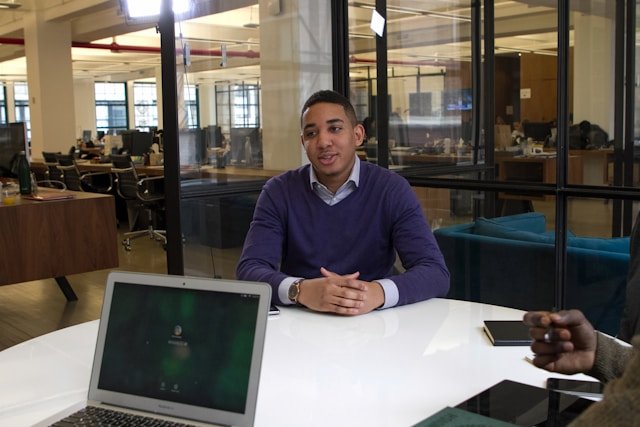Interview Preparation for Climate Careers: Key Strategies for Success
Preparing thoroughly for interviews is crucial to impressing recruiters and securing jobs in climate science, sustainability, renewable energy, and environmental policy. Here’s a comprehensive guide to help you ace your interviews in climate-related fields:
1. Research the Company and Industry:
Understand Climate Initiatives: Familiarize yourself with the organization's climate-related projects, sustainability goals, renewable energy initiatives, and environmental policies. Research recent achievements, challenges, and industry trends.
Industry Knowledge: Stay updated on current trends in climate science, renewable energy technologies, environmental regulations, and global climate agreements (e.g., Paris Agreement). Demonstrate your understanding of how these factors impact the organization's operations and strategic objectives.
2. Review the Job Description:
Align Your Skills: Analyze the job description to identify key responsibilities, qualifications, and desired skills. Prepare specific examples from your experience that demonstrate how your skills and expertise align with the requirements of the role.
3. Practice Behavioral and Technical Questions:
Behavioral Interviews: Anticipate behavioral interview questions that assess your past experiences and how you handled specific situations related to climate science, sustainability projects, or environmental challenges. Use the STAR (Situation, Task, Action, Result) method to structure your responses.
Technical Expertise: Be prepared to discuss your technical skills relevant to climate careers, such as climate modeling, GIS applications, renewable energy systems, environmental impact assessment, or carbon footprint analysis. Demonstrate proficiency in data analysis, research methodologies, and regulatory compliance.
4. Showcase Your Passion and Commitment:
Environmental Stewardship: Communicate your passion for environmental sustainability and commitment to addressing climate change challenges. Highlight any volunteer work, research projects, or initiatives that showcase your dedication to environmental conservation and renewable energy solutions.
5. Demonstrate Problem-Solving Skills:
Case Studies and Scenarios: Be ready to tackle hypothetical scenarios or case studies related to climate adaptation strategies, energy efficiency improvements, or environmental policy recommendations. Showcase your analytical skills, critical thinking, and ability to propose practical solutions.
6. Cultural Fit and Team Collaboration:
Company Values: Emphasize your alignment with the organization's mission, values, and corporate culture. Discuss how your collaborative approach, teamwork skills, and communication style contribute to achieving shared environmental goals.
7. Prepare Questions for the Interviewer:
Inquire About Climate Initiatives: Prepare thoughtful questions to ask the interviewer about the organization's sustainability efforts, climate action plans, and future environmental projects. Show interest in contributing to their environmental stewardship goals.
8. Virtual Interview Tips:
Technology Check: If the interview is conducted virtually, test your technology (camera, microphone, internet connection) beforehand. Ensure a quiet and professional environment with minimal distractions.
Engagement and Body Language: Maintain eye contact, speak clearly, and demonstrate enthusiasm and engagement during virtual interviews. Dress professionally and maintain a positive demeanor throughout the interview process.
9. Follow-Up After the Interview:
Thank-You Note: Send a personalized thank-you email or handwritten note to the interviewer(s) within 24 hours of the interview. Express gratitude for the opportunity, reiterate your interest in the position, and briefly summarize why you are a strong fit for the role.
10. Continuous Learning and Growth:
Professional Development: Stay committed to continuous learning and growth in climate science and sustainability. Pursue certifications, attend workshops, and participate in professional networks to stay updated on industry advancements and enhance your skills.
Conclusion:
Effective interview preparation is essential for securing jobs in climate science, sustainability, renewable energy, and environmental policy. By conducting thorough research, practicing interview questions, showcasing your skills and passion, and demonstrating cultural fit and problem-solving abilities, you can impress recruiters and increase your chances of landing your desired role in addressing global climate challenges.











